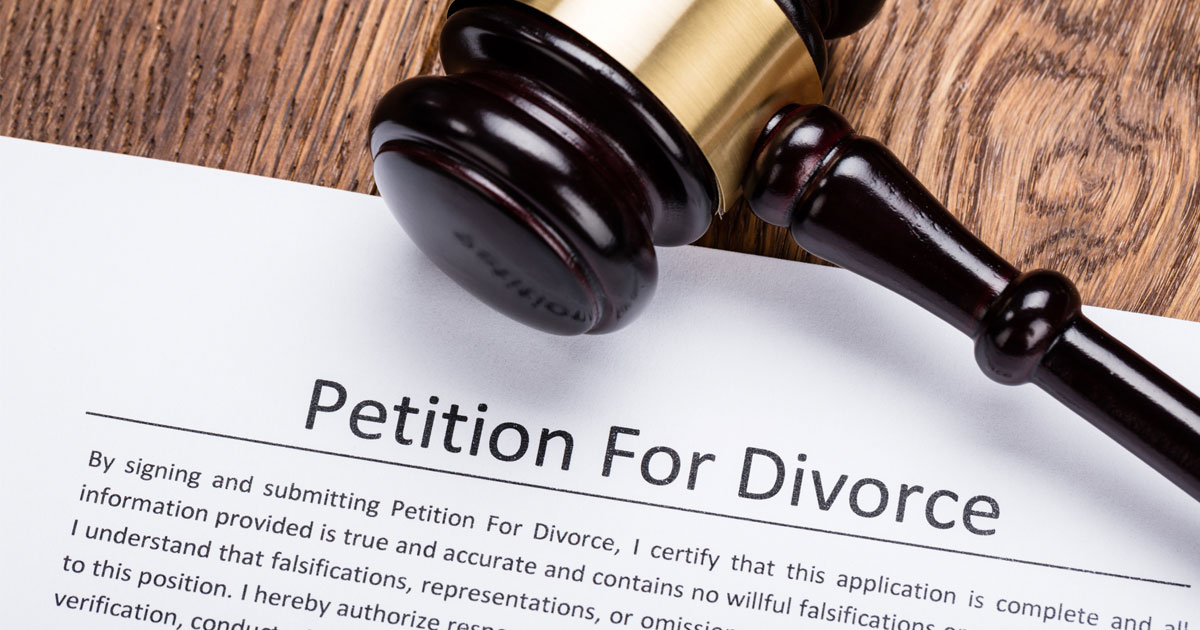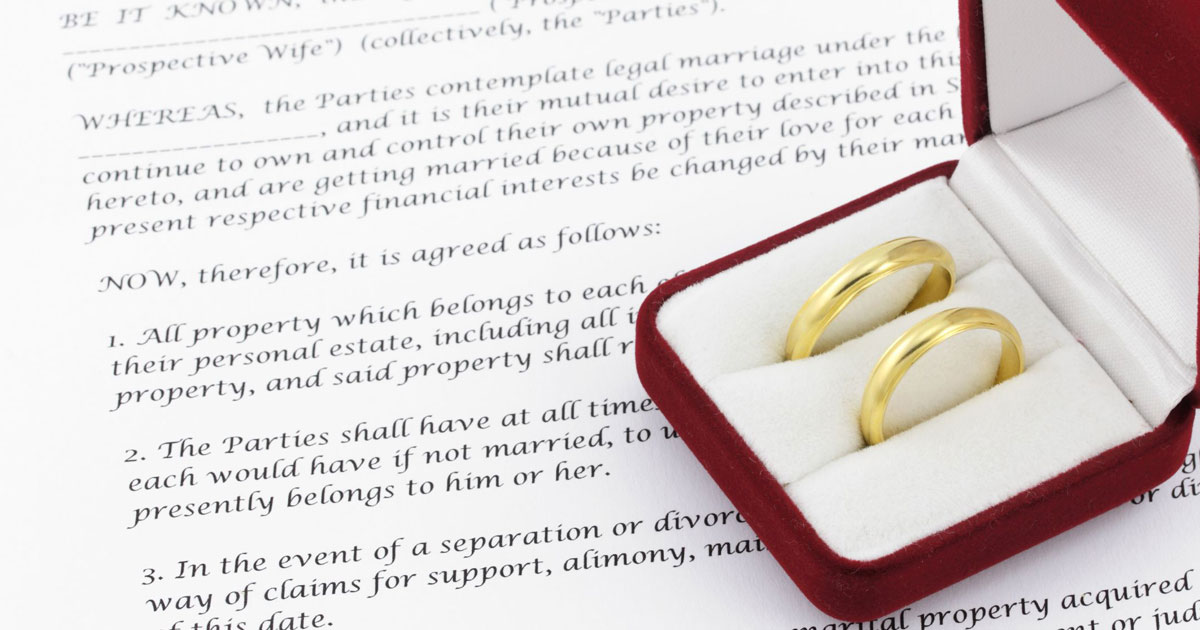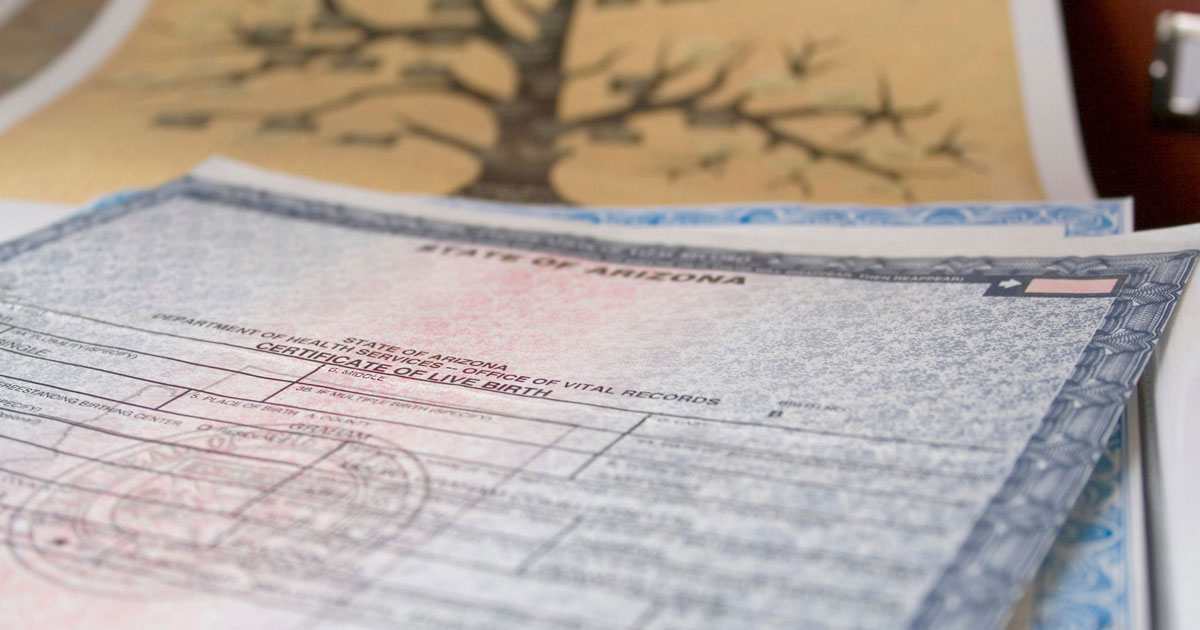Since the turn of the millennium, there has been a steady decrease in divorce cases in Arizona. However, there has been an almost equal decrease in marriages. The unfortunate conclusion we can draw from these two statistics is that divorce frequently occurs here in AZ. Of course, divorce has become just another part of life, but that doesn’t make it any easier for those affected. In fact, divorce is hard, especially as you’re navigating through the Arizona court system.
If you are thinking about filing for divorce, you will need Arizona family law documents drafted by an attorney. The choices you make now will directly impact the outcome of your divorce, the well-being of any children, and your future in general. Thus, it is imperative that you have all you need in order before filing, and that includes the documents necessary to carry out your divorce in AZ.
Without them, things can get complicated—you may even delay your proceedings or be unsuccessful in elements of your case like child custody and visitation, property division, spousal maintenance, and more.
Arizona Divorce FAQ
Knowledge is by far the most important asset you can gain immediately before embarking on the divorce process. Understanding and knowing the laws in Arizona and your rights in an Arizona divorce are key components to surviving the process with as few issues as possible. Below, we’ve compiled the answers to all the most frequently asked questions about divorce in Arizona.
How Is Divorce Defined in Arizona?
Legally, a divorce is a legal termination of the marriage contract. In Arizona, it gives both parties the right to set up plans for the custody of any children, the payment of necessary child support, the division of assets and debts, and the establishment of spousal maintenance (alimony). A divorce also affords both parties the right to marry someone else.
What Should Someone Considering Divorce in Arizona Do First?
Divorce can be stressful and emotional. First, you must prepare yourself for the emotions that are to come. Then, make a commitment to put any children you may have first and consider how your words and actions affect them. Next, gather all the financial records and legal documents you have before you file.
As you move on in the divorce process, be sure to make informed decisions, not emotional ones. Try looking at the situation as a business transaction instead of an emotional end to a relationship. In the same vein, maintaining a formal or business-style line of communication will prevent text or social media warfare, where you might put something in writing your partner can use as ammunition. This type of communication can be used in court and may decrease your credibility in front of the judge.
What Are the Requirements to Get a Divorce in Arizona?
One of the parties must have resided in Arizona for 90 days. If one party is a member of the US Armed Forces and is thus residing in Arizona, the residence must be maintained for at least 90 days before either party can file for divorce in Arizona. After the divorce is underway, both parties do not need to stay in the state unless children are involved—the other spouse and the court must approve moving children out of the state before the divorce is finalized.
What Documents Does the Plaintiff Need to File for Divorce in Arizona?
- Application and Affidavit for Default
- Proof of Service
- Petition for Dissolution of Marriage
- For parents of minor children, use the Dissolution of Marriage with Children form.
- Legal parenting decision-making and custodial time request
- Proof of completion of the Parent Information Program
Do I Need a Lawyer to Get a Divorce in AZ?
No. In fact, you can use this website to draft legal documents necessary to file for divorce. Parties representing themselves in court do so “pro se” or “in propria persona.” Assuming there is no issue of domestic violence, there is nothing stopping you and your partner from working together to come to an agreement on the divorce’s terms. If you cannot resolve a dispute, it will then be necessary for the court to intervene and decide for you. In either case, a judge will approve the plan and finalize the ruling.
What Do You Need To Know About Divorce in Arizona?
Arizona is a “no-fault” state when it comes to divorce. “No-fault” laws state that neither party needs to be held at fault for the failure of the marriage for the divorce to be approved by a judge. The reason behind the divorce request is not an issue of the court. One party must simply state that he or she wants to divorce and file the necessary petition to dissolve the marriage.
Arizona does not allow bifurcated divorce. A bifurcated divorce means a judge can sign off on the divorce while allowing issues such as child support and custody, property division, and alimony to be decided later. In Arizona, a judge must ensure that any divorce decree fairly addresses the division of community assets and debts, child custody and support, and spousal maintenance before signing off on the divorce.
A jury is not present when an Arizona divorce goes to trial. If a party disagrees with the final decision set forth by the AZ family court, they may appeal in a timely fashion.
What Is a Spouse Entitled to in a Divorce in Arizona?

Since Arizona is a community property state, marital assets will be divided equally between spouses. Non-marital property, including those brought into the marriage by one spouse, property received as a gift from another person, and inherited property is not subject to division. While a precise 50/50 division is not always possible, the court will divide the property as equitably as possible, given any premarital agreements or decisions made in mediation.
What Is the Best Tool for Handling an AZ Divorce on Your Own?
Understanding divorce is the best way to effectively handle a divorce on your own. It is vital to know and understand your and your spouse’s rights and the protections in place for minor children within Arizona law. Assistance from Draft My Legal Documents can offer education as well as tools to ensure you have the correct legal documents in place.
How Do You Initiate Divorce in Arizona?
Initiation of a divorce begins when one spouse files a “Petition for Dissolution of Marriage” with the Superior Court clerk and pays the required filing fee. The court must then serve the other spouse a copy of the petition and summons. He or she then has 20 days from the service date to respond by filing a written response (the court allows 30 days for out-of-state service).
What Is Service of Process?
Proper service of process is essential to divorce proceedings in Arizona. If papers are not served to one of the parties properly, the court order is considered unenforceable and invalid. The plaintiff in the case is entitled to an appropriate window of time to obtain legal representation.
There are four means by which the service of process is considered acceptable:
- Service by Acceptance—Completing the Acceptance of Service form serves as proof of service.
- Service by US Mail or National Courier—When papers are served, the defendant signs for them. An affidavit of service with signature confirmation serves as proof of service.
- Service by Private Process Server or County Sheriff—The opposing party receives the papers via a private process server or a sheriff personally. The server or sheriff then files an Affidavit of Service as proof of service. If the other party is out of state, an Affidavit Supporting Out-of-State Service serves as proof of service.
- Service by Publication—If other methods of service are unsuccessful, legal notice of service by publication will suffice. A court will accept an advertisement published in a newspaper of general circulation announcing the petition. An Affidavit Supporting Publication serves as proof and gets filed after the notice has been published.
What Is a Petition to Divorce?
A petition for divorce must be filed under oath, as it makes certain statements about both parties and the marriage.
- Personal info about both parties
- Location and date of marriage
- Confirmation that no significant domestic violence has occurred
- Confirmation that the marriage is irretrievably broken
- One of the parties has lived in Arizona for a minimum of 90 days
- Personal details of all minor children involved, including unborn children
- Both parties have come to an agreement on a parenting plan arrangement
- Assets, debts, community property, and separate property and division of
- Marital debts and division of
- Income tax and division of
- Request for Spousal maintenance, aka alimony
- Written agreements, if any
- Child support order, if any
- Attendance of parenting class
- Name change request
Can a Name Change Request Be Granted After the Petition Is Filed? [H3]
Yes, the requestor must file an “Application for Change of Name for an Adult” as a separate civil action. In most cases, the change can be made as part of the divorce decree. Only name changes reverting to the maiden name are valid as part of the dissolution of marriage.
What Happens After a Divorce Petition Is Filed?
The Superior Court of Arizona must try every family case of divorce in AZ. The expediency of this phase of the process depends on court schedules, contested/uncontested status, mediation, if any, an Alternative Dispute Resolution (ADR), the ability of both parties to come to an agreement, and more.
What Is a Preliminary Injunction?
A preliminary injunction goes into effect automatically as soon as Arizona divorce proceedings commence (upon service of the Petition and supporting documents onto the opposing party). This injunction is a court order that limits the activities of the involved parties while their divorce is pending. Unless one of the spouses consents in writing or the judge grants permission, neither spouse can take unilateral action against the marital estate.
Examples of prohibited actions include the following:
- Neither spouse is allowed to hide earnings or community property from the other.
- Neither spouse is allowed to take out a loan on a property that is considered community property.
- Neither spouse is allowed to sell items that are community assets or give them away without the other’s written consent. The only exception will be if they are doing so to provide for food, shelter, clothing, court fees, or attorney fees associated with the divorce.
- Neither party shall threaten, physically abuse, or harass the other spouse or involved children.
- Neither party shall remove involved children from the Court’s jurisdiction without written consent from the other spouse or permission in a court order from the judge.
- Neither party shall remove the spouse or children from insurance policies, and each party must maintain all insurance coverage throughout the divorce.
How Long Do You Have To Be Separated Before Getting a Divorce in AZ?
Arizona does not require a married couple to legally separate before initiating a divorce. However, there is a 60-day period that must pass between filing and serving papers and the finalization of the divorce decree. Often, depending on the court’s caseload and schedule, this period will last longer than 60 days.
How Long Does It Take To Get a Divorce if Both Parties Agree?
The Arizona Conciliation statute states that for the first 60 days following a petition for divorce, the filer’s spouse may request free marriage counseling and attempt to save the marriage. This statute also requires that a 60-day period must pass between petitioning the divorce and a judge signing off on the divorce decree. An uncontested divorce, or a divorce in which both parties agree on terms, can take anywhere from a minimum of 61 days to 120 days or more, depending on the disputes that must be resolved in court. Contested divorces with numerous disputes, complex financial holdings, and other complications can take even longer (often 6-8 months).
What Is a Contested Divorce?
If an uncontested divorce is one in which neither party “contests” or disagrees with the terms outlined in the petition as filed with Arizona courts, then a contested divorce is one in which one of the parties contests the terms of the filed petition. A contested divorce is a more complicated process and requires a trial before a judge. The judge then determines the fair terms of the various decisions made in the final divorce decree.
How Much Does a Divorce Cost in Arizona?
Once you have completed your petition, filing the papers with the court requires a fee of $349. Then you must serve your spouse with the papers. Serving the papers to your spouse can be completed via a process server (typically around $100), a police officer, a sheriff’s office, or other services. The server must complete an Affidavit of Service declaring when and where the papers were served. Alternatively, your spouse can sign a notarized Acceptance of Service. With the necessary paperwork, filing fees, and court fees, an unassisted divorce can cost close to $700. By contrast, an uncontested mediation or collaborative divorce will cost closer to $2,500-$8,000 with attorney’s fees. Contested divorces with a final trial on the disputed issues can range anywhere from $10,000 to well over $100,000 (complex cases with significant assets and/or high conflict child custody issues) with attorney’s fees.
How Soon Can Divorcees Remarry After a Divorce Is Finalized?
Arizona does not have a post-divorce decree period that delays remarriage. However, a remarriage automatically voids a spousal maintenance agreement unless otherwise stated in the divorce decree.
What Is a Premarital Agreement or Prenup?
A premarital agreement or prenuptial agreement establishes the rights and responsibilities of both spouses upon getting married. It also delineates those rights and responsibilities should the marriage end in divorce or if one of the parties dies during the marriage. In other words, it typically outlines how assets will be divided in the event of divorce. In Arizona, the couple must finalize any premarital contract before they exchange wedding vows at a civil or religious wedding ceremony.
These types of contracts are legally binding in Arizona. Terms will be honored in Arizona family court if a couple is divorcing and has a prenuptial agreement in place.
Does Arizona Allow Same-Sex Divorce?
When same-sex marriage officially became the law of the land in 2015, so did same-sex divorce. While same-sex divorce should be treated in the same manner as opposite-sex divorce, unfortunately that is not always the case. Unrefined interpretation of newer laws doesn’t always have precedent and is at the discretion of the presiding judge, who may or may not have experience with this type of divorce.
Therefore, it is often recommended for same-sex married couples who wish to divorce to work towards settlement of issues to mitigate the costs and stress associated with going to trial. The factors briefly mentioned in the paragraph above could have detrimental effects on the well-being of both spouses and any involved children. The rulings of the court could potentially be more detrimental to moving forward than if you agree to settle outside of court. Use mediation or collaborative divorce to come to an agreement on as much as possible before proceeding to court. In any divorce case, whether same-sex or opposite-sex, it is less expensive, faster, and easier, in general, to settle outside of court.
Same-sex divorces can be handled easily with our document prep service so long as there are not complex legal issues at hand. However, if you have any difficulty understanding or interpreting the laws or coming to an agreement with your spouse, find an experienced LGBTQ attorney and schedule a consultation. New laws are often difficult to understand and enforce, so be fully informed and aware of your rights before embarking upon a same-sex divorce in Arizona.
What Is a Military Divorce?
A military divorce must deal with the law and circumstances overlaying marriage and divorce when either spouse is a member of the military or is a military retiree. Whenever civil court proceedings involve members of the US Armed Forces, certain state and federal laws are uniquely applied that are not applied to non-military divorce cases.
These laws redefine almost every aspect of family law, from calculating child support to determining the degree of ability to share child custody. In some cases, the laws make divorce proceedings easier for spouses. It is highly recommended that you further explore and educate yourself on laws regarding military divorce if you or your spouse are active or retired from the military. These laws apply specifically to your unique situation and may, in fact, benefit you and your family.
What Is a Separation Agreement in AZ?
A Separation Agreement is a completely uncontested agreement that does not require a trial. Rather, the judge signs off on it without question, so long as it was constructed with the complete agreement of both parties. It serves to delineate financial matters like property division, support, and more while the couple remains legally married.
Can I Get a Divorce for a Common-Law Marriage?
Arizona does not consider a couple to be married just because they live together; and therefore, do not recognize common-law marriages within the state of Arizona. However, the state does grant divorces for common-law marriages recognized in another state.
What Is an Annulment of Marriage in AZ?
A marriage that is annulled is voided as if it never happened in the first place. Both parties are considered to have single status as if they had always been single and never married. For a marriage to qualify for an annulment, a judge must determine certain attributes of the union were in place. Attributes can include:
- One party did not consent to the marriage or only consented under duress
- One party was mentally ill and lacked the capacity to consent to the marriage, either permanently or temporarily
- One or both parties were intoxicated at the time of the marriage
- One or both parties were underage and lacked parental consent
- One party remains unable to consummate the marriage
- The parties are siblings, parent and child, aunt/uncle and niece/nephew, or other close relatives
What Is Legal Separation in Arizona?
A decree of legal separation is an alternative to getting a divorce for many people. For certain personal reasons, a couple may hesitate to file for a divorce decree and may choose to file for a legal separation instead. While a legal separation is sometimes an alternative when religious, financial, or personal factors mean divorce is out of the question, a legal separation can create the same conditions as divorce, including property/debt division, custody/child support, and financial matters. However, parties who are legally separated may not remarry, as the marriage is still legally valid.
How Do I File for Legal Separation in Arizona?

To File a Legal Separation Without Minor Children:
Complete the following forms and make two additional copies (three sets):
- Summons
- Preliminary Injunctions
- Petition for Legal Separation Without Minor Children
- Notice Regarding Creditors
File one set (original paperwork) with the courthouse two hours or more before the location closes. Serve a second set to your spouse. Save the third set for your records.
Note that a judge will not approve a legal separation if one of the parties does not want one.
To File a Legal Separation With Minor Children:
- Complete the “Family Department Sensitive Data / Cover Sheet”
- Complete the Child Support Worksheet online (Print 1 copy of the completed worksheet)
- Make two copies of the following documents:
- “Summons”
- “Preliminary Injunctions”
- “Petition for Legal Separation with Minor Children”
- “Affidavit of Minor Children”
- “Order and Notice for the Parent Information Program”
- “Notice Regarding Creditors”
- “Parenting Plan”
- “Child Support Worksheet”
Separate your documents into three sets. File your paperwork with the courthouse at least two hours before closing. Serve your spouse with papers and keep a copy for yourself.
What Is the Caption on Divorce Papers?
All documents relating to an Arizona divorce case include a header and a caption. This caption will appear on all paperwork, such as discovery papers, motions, pleadings, and more, and remains the same throughout the case other than the title of the document (e.g., “Petition,” “Motion,” “Notice of Hearing,” etc.).
Page one of the Petition for the Dissolution of Marriage document displays a caption that contains the following information:
- Contact info for the petitioner and attorney info, if represented
- Superior Court for the Arizona county of filing
- Identifies the Petitioner (Plaintiff) and Respondent (Defendant)
- Case number
- Atlas number assigned by child support enforcement agency to cases involving minor children
- Case title: “Petition for Dissolution of Marriage (Divorce) with Children” or “Without Children”
What Is Discovery in Arizona?
Discovery in Arizona can vary depending on the case and the specific facts involved. However, discovery is the process where each party involved in a legal case like divorce exchanges information and evidence with the other side. This process can help both parties better understand the issues in the case and prepare for trial.
Discovery must meet the following four conditions:
- The information must be relevant to the case.
- Privileged information is not considered discoverable
- Parties cannot inundate each other with requests for discovery
- Parties cannot use discovery to harass or embarrass the other
Can Posts on Social Media Be Used as Evidence in My AZ Divorce Case?
Yes. You don’t have to stop posting altogether but do keep in mind everything that you post online could be used against you in court. Child custody evaluators will gather social media evidence to validate or undermine your credibility and honesty to establish the potential for responsibility (or irresponsibility) of custody. Keep all mention of your divorce proceedings off social media until it is finalized.
Will I Get in Trouble if I Record My Spouse’s Phone Calls?
Arizona Electronic Communications Statute, ARS 13-3005, allows the recording of telephone conversations if one party consents to the recording. Therefore, you can consent to the recording of your own telephone conversations. Recording a telephone conversation between your spouse and a third party without their knowledge is illegal. However, you must keep in mind that you could violate the privacy laws of another state if you record your telephone call with an out-of-state participant without his or her consent.
Am I Allowed to Listen in on My Spouse’s Phone Conversations to Find Grounds for Divorce?
Eavesdropping is considered a crime, and it occurs when you listen to, amplify, or transmit any part of a private electronic or oral communication without the permission of at least one of the engaged parties. If you knowingly listen to someone else’s phone call with a third party, even if one of the people talking is your husband or wife, you could be charged with criminal activity. It is illegal to eavesdrop on others’ private conversations if you are doing so in a manner that is wrongful, deliberate, and intentional. This type of intentional interference with oral or electronic communications can result in criminal charges, potentially even felony charges, under ARS § 13-3005.
How Can I Protect My Credit Score During a Divorce?
There are a few things you can do to protect your credit score during a divorce.
These include:
- Keeping up with your payments on any joint accounts
- Making sure any joint accounts are closed or transferred to one party
- Making sure any joint accounts are closed or transferred to one party
- Disputing any negative information on your credit report
- Keeping track of your credit score so you can catch any changes early on
Is There Any Way to Make My Partner Pay for My Arizona Divorce Attorney?

In some cases, the court has the discretion to order one party to pay all attorney fees. In other cases, the court will award attorney’s fees, such as when the complaint is not written in good faith or is not based on facts or law. Costs are likely to be awarded if the complaint is filed for improper reasons, such as to increase the costs of litigation, to extend/delay the case for some reason, or if the other party’s position is unreasonable. There may also be an order for one party to pay the other’s attorney fees if there is a significant difference in income between the spouses. A good way to save money is to educate yourself about family law relevant to your specific situation.
If the separation agreement contains a written statement that one party will be responsible for fees, relieving the other party of that responsibility. If the judge agrees, they will sign the decree and order the payment of the fees. Again, both parties must agree.
Are Divorce Attorney Fees and Court Fees Tax Deductible?
In 99% of cases, no. You can only deduct expenses that contribute to the collection of gross income. However, we recommend you consult with a tax professional for advice specific to your situation.
What Is a Default Divorce in Arizona?
A default divorce is a common way to dissolve a marriage when time isn’t a concern. These types of divorces often occur in Arizona when couples have no minor children. An “off the record” agreement, in some cases, is enough for two people to settle their differences and part ways. In a default divorce, when both sides agree completely on all family matters, the defendant may simply and consciously not respond to the petition.
In other situations, if one party is unreachable or refuses to participate in the divorce, a default divorce may be the only option. If the papers were properly served to the second party and no plea was filed in response within 60 days, the petitioner then files an Application for an Affidavit for Default, which is followed by a 10-day waiting period.
If you are the petitioner, make sure to create two copies of the application and the affidavit. You must hand deliver or mail one copy to the other party, file one copy with the courts (the original), and keep one copy for your files.
After ten days have passed, the petitioner schedules a default hearing and appears in court. This hearing is a requirement in a default divorce case.
The petitioner submits all pertinent paperwork to the court, including the following documents and forms:
- Application and Affidavit for Default
- Proof of Service
- Petition for Dissolution of Marriage
- Legal decision-making and parenting time request
- Parent Information Program Certificate
The divorce process then continues by mail if the judge grants the motion. When all documents have been submitted, and the review process of the court is complete, the judge orders a default divorce. The final decree is mailed to both parties.
What Is a Collaborative Divorce in AZ?
A collaborative divorce is another means of resolution for dissolving a marriage when there is a dispute between the two parties. It avoids the step of taking the case to trial. The sides agree to resolve their differences by negotiating and do so with the help of various professionals. Professionals may include attorneys, negotiation coaches, financial advisors, and more.
What Is a Partial Agreement Divorce in AZ?
In a partial agreement divorce, the divorce proceeds to court even though the spouses do not agree on all its terms. Because the settlement process is crucial to any divorce, both spouses are expected to try to resolve the issues left between them by negotiating one thing at a time to the best of their ability. Once an issue is settled and agreed upon, it is marked off the agenda for the trial. Anything that is not determined in mediation will be settled in the trial before the judge.
What Is Mediation?
During a divorce, parties may need someone to help them work through their differences to come to an agreement and finalize the divorce. When parties are unable to come to terms with the agreement independently, a court may order alternative dispute resolution (ADR), also known as mediation. Spouses may also choose to work with a mediator voluntarily from the beginning. Through private mediation or the court’s Conciliation Services, a parenting plan is often the first order of business during many mediation arrangements.
What Is an Arizona Covenant Marriage?
A covenant marriage is unlike a standard marriage in that it entails additional formalities and requirements beyond those included in a traditional standard marriage contract. The marriage license indicates the election of a covenant marriage by the couple and initiates marital counseling as a prerequisite to marriage. In congruence with this, it is also more complicated to dissolve a covenant marriage than a typical no-fault divorce. However, an uncontested divorce can still occur if both parties agree to dissolve the covenant marriage.
Get Essential AZ Family Law Documents
You can file for divorce without an attorney and save money on legal fees—but you don’t have to do it alone. Draft My Legal Docs can offer support and guidance throughout the entire divorce process.

When you’re ready to begin completing the documents necessary for your uncontested divorce, take our questionnaire to determine which documents you need.
Jonathan Roeder is one of the founding partners of The Valley Law Group. He is an Arizona native who has dedicated his life and career to the service of others. After graduating salutatorian of his high school class, Jonathan attended beautiful and prestigious Pepperdine University, where he majored in Political Science. During his tenure at Pepperdine University, his passion for helping others grew after securing a clinical position with a residential treatment center for juveniles with substance addictions. Post-graduation, Jonathan returned to Arizona and served as a residential manager for mentally and physically disabled homes.



















